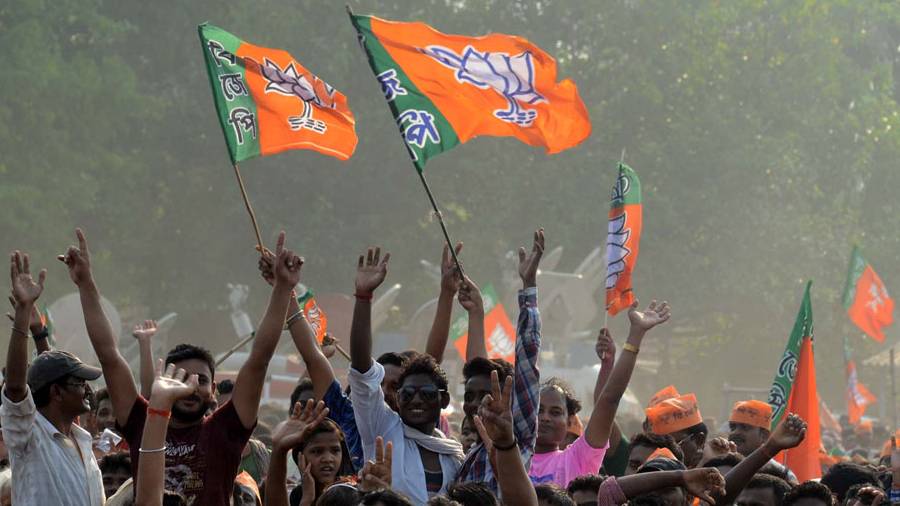Nothing energises the Bharatiya Janata Party more than the prospect of gobbling up greener political pastures. The BJP’s outreach in southern India — a region where the lotus is yet to bloom, except in Karnataka — a year before the general elections needs to be seen in this context. As part of its latest outreach, the BJP recently welcomed Anil Antony, the son of the veteran Congressman, A.K. Antony, into its fold. Kiran K. Reddy, the former Congress chief minister of Andhra Pradesh, was notched up as well. In Kerala, the party also tried to mend fences with the Christian community on Easter. A part of this exercise is to insulate the BJP’s electoral dominance from unexpected poll reversals — be they in Karnataka or in the general elections.
The news of rival politicians switching sides may make for gratuitous optics. But would the dividends accrue favourably? The BJP’s prized catches — Mr Antony and Mr Reddy — are unlikely to bring considerable political capital on the ground. In fact, the BJP’s reliance on turncoats — a strategy that it has employed repeatedly — only bares the organisational deficits of the party. There is another, attendant, irony that has gone uncommented by a docile media. Even though Narendra Modi periodically thunders against the malaise of dynasty — not just the Congress but also the Dravida Munnetra Kazhagam and the Bharat Rashtra Samithi have been on the prime minister’s radar — the BJP seldom hesitates to accommodate dynastic scions. Organisational weakness — the reason behind the BJP’s ‘shopping spree’ in the South — is not the only daunting challenge. Southern politics has been dominated by currents — ideological, linguistic and so on — that are inimical to the BJP’s core image. Consider the saffron brotherhood’s eagerness for the imposition of Hindi, a move that has been spiritedly resisted by the southern states moored in their own rich and diverse linguistic roots. Cultural exceptionalism is also a formidable obstacle. The latest controversy in Karnataka, where the BJP is being criticised for conspiring to elbow out a local milk brand, is a classic example of the weaponisation of indigenity against a party that is perceived to be an intruder. What must worry the BJP mostis that its Hindutva formula, which has worked wonders in the West and the North of the country, is yet to take off spectacularly in the South:demographic peculiarities as well as enduring pluralist ethics are the likely explanations. It would be interesting to see whether this pluralism survives the BJP’s determined push. That would have ramifications for southern politics and the country as a whole.











